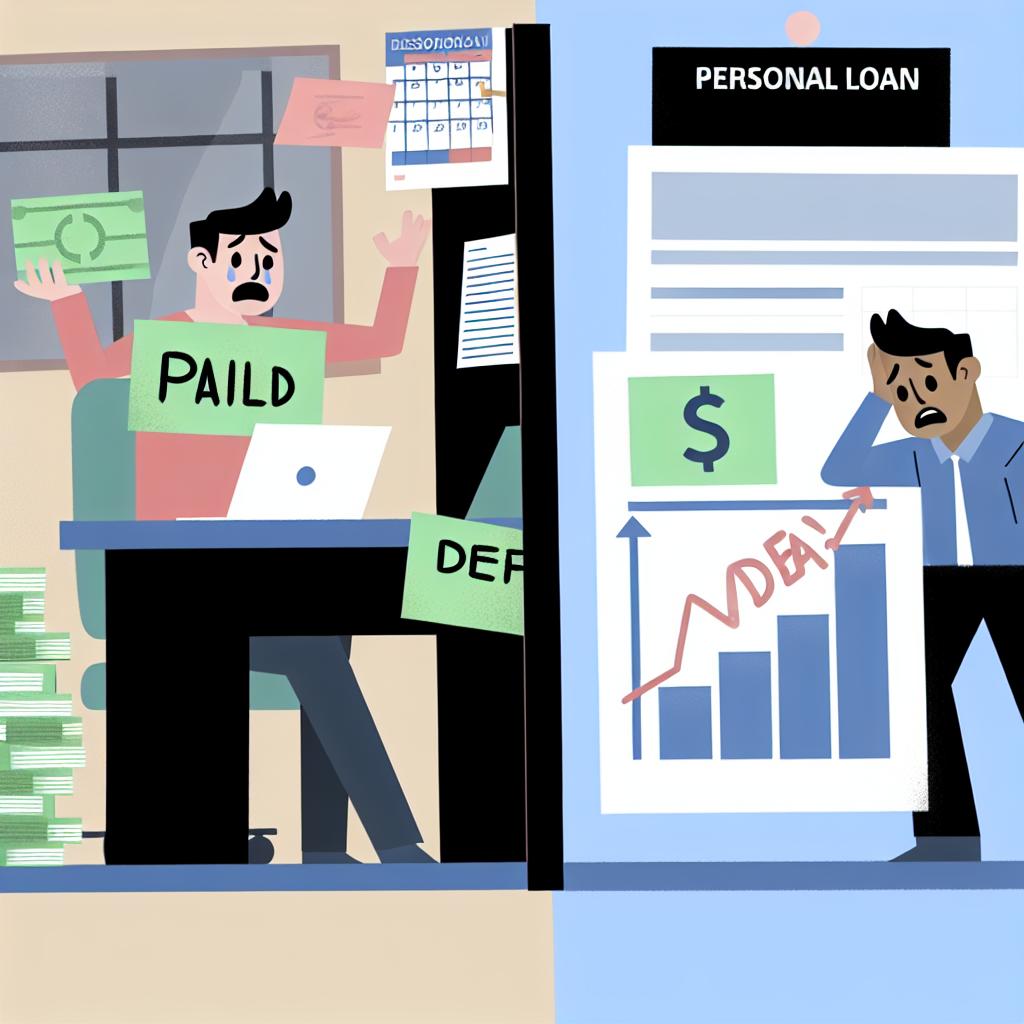Introduction
When faced with mounting debt, many individuals consider taking out a personal loan to manage their financial obligations. This approach can offer several benefits, but it also comes with certain drawbacks that should be carefully evaluated. This article examines the pros and cons of using a personal loan to pay off debt.
Understanding Personal Loans
A personal loan is a type of loan that an individual can use for various purposes, including consolidating debt. Unlike loans that are earmarked for specific purchases like a mortgage or car loan, a personal loan offers flexibility. Typically, these loans are unsecured, meaning they do not require collateral. To learn more about personal loans, visit this informative page from a reputable financial institution.
Pros of Taking a Personal Loan to Pay Off Debt
Simplified Payments
One of the main advantages of consolidating debt with a personal loan is the simplification of monthly payments. Instead of juggling multiple creditors and due dates, borrowers can make a single payment each month, often to one lender. This not only reduces the risk of missing payments but also eases the mental burden of handling multiple financial commitments, thus making financial management more straightforward.
Potentially Lower Interest Rates
Depending on creditworthiness, borrowers may qualify for a personal loan with a lower interest rate compared to credit card debt or other high-interest obligations. This reduction can result in significant savings over time, as lower interest means that more of the monthly payment goes toward reducing the principal amount, helping individuals clear their outstanding obligations more quickly.
Improved Credit Score
Using a personal loan to pay off revolving credit, like credit card balances, can help improve a credit score. This is primarily due to the reduction in the credit utilization ratio, which is an important factor in credit scoring models. A lower utilization ratio indicates to lenders that an individual is using a smaller portion of their available credit, which is typically viewed favorably in credit assessments.
Cons of Taking a Personal Loan to Pay Off Debt
Potential for Higher Costs
If a borrower does not secure a favorable interest rate, a personal loan may end up being more expensive over time. It is crucial to compare the total costs involved, including interest rates and any additional fees. Sometimes, even if the interest rate is lower, the duration of the loan term can lead to paying more in interest over the loan’s lifetime. Borrowers should calculate the total cost of the loan against the debts they are consolidating to ensure they are coming out ahead financially.
Risk of Accumulating More Debt
Paying off credit cards with a personal loan might reduce existing debts temporarily, but without disciplined financial behavior, there’s a risk of incurring new debt. Borrowers should be wary of falling into the trap of using newly available credit. It requires a commitment to avoid charging expenses on the cleared-up credit lines; otherwise, the financial burden could potentially double, with both the new loan and renewed high credit balances creating an unsustainable debt cycle.
Impact on Credit Score
While a personal loan can improve a credit score, it can also lead to a temporary dip. The credit inquiry and the new account can impact the score initially, and if not managed well, can bring down the score over time. Hard inquiries made by lenders when a loan application is processed can reduce scores slightly. Furthermore, taking on any new debt can raise concerns about borrowing habits, especially if not aligned with improved financial behavior.
Evaluating Personal Loans against Other Options
Balance Transfers
For those considering personal loans, weighing them against a balance transfer on credit cards might be worthwhile. Balance transfer offers usually come with introductory low or 0% interest rates. However, they often involve transfer fees, and rates can spike once introductory periods end. Comparing these terms to personal loan offers can help determine the most cost-effective solution.
Budget Adjustments
Considering budget adjustments before opting for a loan might also yield benefits. Cutting down on non-essential spending can free up capital that can be redirected towards debt repayment. Creating a detailed budget that distinguishes between needs and wants is crucial, allowing borrowers to see precisely where their money is going and identify areas where they can economize.
Credit Counseling
Consulting a credit counselor offers another resource. Counselors can assist borrowers with developing budget plans aimed at balancing debt repayment with essential living costs. They can also aid in negotiating with creditors for lower interest rates or setting up a debt management plan, sometimes providing solutions more tailored than a personal loan.
Conclusion
Taking out a personal loan to pay off debt can be a wise decision under the right circumstances. It can provide financial relief and aid in managing finances more effectively. However, it’s important to weigh the potential drawbacks and assess one’s financial situation thoroughly before proceeding. Consulting with a financial advisor or a credit counselor can also provide additional insights and help make an informed decision. Crafting a detailed plan and comparing alternatives are vital steps to ensure that borrowing leads to improved financial health rather than exacerbating existing problems. Balancing immediate relief from debt with long-term financial stability should remain the ultimate goal in considering any debt consolidation strategy.


